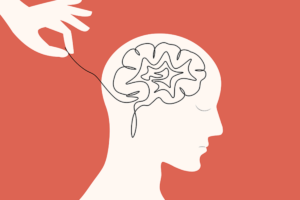By Dawn Institute
As a 23-year veteran of a law enforcement agency, I have spent significant time reflecting on the mental health impact of serving as a first responder. In my two decades of experience, I have gained an intimate understanding of the mental health challenges that can arise from a high-stress (and even traumatic) job. I’ve seen how, if untreated, symptoms can worsen and lead to long-term illness.
I began my career as a patrol deputy, where I responded to routine calls, as well as emergency calls for service. Later, as a field training officer, I worked with new recruits hoping to become law enforcement professionals. I was then selected to become a detective, where I investigated a variety of general crimes, including property crimes and crimes against people. I then moved on to different detective assignments throughout the office, including intelligence, special victim’s unit and specialized investigations.
While incredibly rewarding at times, this career path took its toll on my physical and emotional well-being.
Battling Symptoms And Stigma
Nightmares, insomnia, indigestion and worrisome thoughts plagued my daily life; my family bore the burden of mood swings, bouts of frustration and sadness. I found myself in an unfamiliar, mentally debilitating place. I couldn’t understand what was causing my symptoms — but I knew something was terribly wrong — and I was afraid to pursue answers.
I considered reaching out for help, but fear and deeply internalized stigma stood in my way. In my work environment, my colleagues would view my symptoms as a sign of weakness. Further, my daily workload demanded my full commitment. The constant duties and on-call status never allowed the time for self-care, let alone seeking possible treatment. I felt overwhelmed and guilty; furthermore, my guilt was wrapped around my inability to keep going.
The field I dedicated 23 years of my life to did not provide me support or encouragement to seek help. Thankfully, someone else did.
Changing My Perspective And Making Progress
I was speaking with my daughter one day on an unrelated subject, and she commented that, “everyone needs a therapist.” For the next few days, I contemplated what she said, and, ultimately, I decided to speak with a therapist. Although my insurance through my employer covers mental health care, I decided to pay out of my own pocket. I was afraid any insurance claims may raise red flags about my mental health and fitness for duty.
I began working with a therapist and discovered I could speak freely and put my feelings on the table. I opened up about particular job-related difficulties I faced, like mood swings and recurring nightmares. I was diagnosed with severe anxiety as well as PTSD, and my therapist and I determined that these conditions were a direct result of my current profession.
While working with my therapist, I eventually got to a place where I understood why I had certain feelings that I previously couldn’t explain. For example, I learned that my work-issued phone brought me anxiety whenever it would ring, especially when I was “on call.” This was due to the uncertainty of what type of call I would be responding to as a detective with the special victim’s unit.
With more work and reflection, I came to understand anxiety, depression and post-traumatic stress (PTSD) were slowly impeding my ability to give myself care and love.
A Broader Issue
I am not alone in my struggle to cope with the stresses of my job. As the data and my personal experience suggest, many first responders are dealing with the consequences of witnessing and experiencing trauma on a regular basis.
The Centers for Disease Control (CDC) and Substance Abuse and Mental Health Service Administration (SAMHSA) have found that depression, post-traumatic stress, substance abuse and suicidal ideation are prevalent among first responders; more than 30% of first responders develop PTSD.
Only once I sought treatment did I learn that SAMHSA and the CDC provide research and data to help first responders acquire knowledge and awareness of mental health symptoms and treatment options. My hope is that other first responders will find and use these resources.
Moving Forward And Healing
Currently, I am still trying to work through my symptoms — and I wonder if I will ever have a good night’s sleep. I wonder if my spouse will ever have a night where she does not have to wake me from nightmares. I wonder if my daughter will ever stop worrying about me.
I am new to the world of therapy, but it has given me a place of hope. I never thought it was possible to talk about my symptoms, but I am thankful that there is someone who wants to listen and assist me in my need for answers.
The most important knowledge I hope to pass on is that every human being can benefit from talking to a therapist. I have found therapy to be imperative and a lifetime process. With hindsight, I would give anything to rewind — to start over and learn about how my career could debilitate my mental health and how therapy could change the trajectory. This greater understanding certainly would have improved my mental health and helped me on the job.
While the saying, better late than never, describes my current journey, many first responders can’t wait to find answers.
It is my hope that my fellow first responders will find encouragement from my story to reach out for help — to secure a good therapist and begin exploring the feelings that may have intruded on their lives and careers. Mental health is directly related to physical health; the two are intertwined and a truly healthy individual needs to address both.
The author of this blog, who wishes to remain anonymous, wrote this piece for the Dawn Institute. It has been edited and republished with permission. Dawn Institute, an Arizona-based organization, strives to support the prevention and healing of trauma through innovative mental health services that treat the whole person, equip parents and nurture resilient families. For more information, visit https://dawninstituteaz.com/.
If you are a health care or public safety professional seeking support for your mental wellness, visit nami.org/frontlinewellness for resources and to learn more.
Source: https://nami.org/Blogs/NAMI-Blog/March-2022/Every-First-Responder-Deserves-Solace




